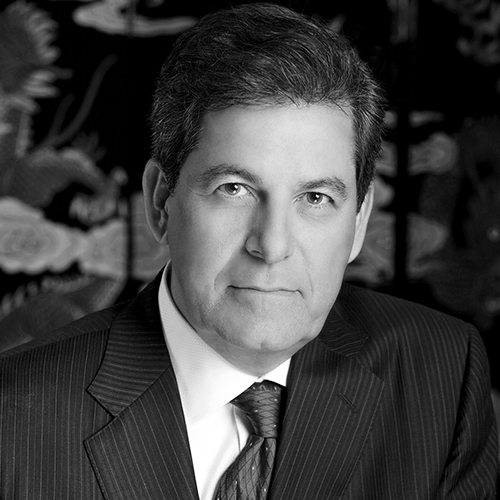American health care has changed dramatically since Doug Hammer joined and helped define the industry.
When he joined Intermountain Healthcare in 1977, Hammer was one of the first in-house lawyers in the industry. In the late 1970s, he helped oversee the consolidation of hospital facilities and the development of an efficient integrated system. In the 1980s, he was asked to serve on Utah’s Health Insurance Subcommittee to help rework the state’s insurance code.
Though the industry has undergone major changes over the course of four decades, Hammer has helped Intermountain pursue a common theme. Intermountain lawyers and lobbyists regularly go beyond regulatory and statutory compliance to help shape state and federal policies. Their efforts are to support operational flexibility, consumer choice, and the organization’s mission to “help individuals lead the healthiest lives possible.”
“We’re the mechanics under the hood that make sure the organization is running properly,” Hammer says of Intermountain’s legal department and government relations teams. “We have to understand Intermountain’s objectives and strategies, and then fine-tune the motor to get us to our intended goals.”
Working with state and federal lawmakers results in a frenetic schedule for Hammer, particularly when the Utah legislature meets for its annual session, which lasts forty-five days. At the beginning of 2015, this involved tracking nearly eighty legislative bills.
Time is always of the essence. For example, Hammer and groups of lobbyists met with a state senator to craft language for a bill related to workers’ compensation carriers and their hospital relationships. The results had to be acceptable to all the parties as well as the state labor commission, and the language had to be completed in two hours, before a committee meeting began.
“We’ve held meetings at our children’s hospital and other facilities so that our lawyers get firsthand reminders of the care we provide and the community needs that we serve. Ultimately, those are the reasons why we are dedicated to being here and doing the work we do.”
Hammer admits that the sessions are challenging. “It’s impossible for any one person to understand all the areas, so I help manage a number of different teams of experts and outside counsel when needed,” he says. “That gives us the resources to effectively manage the details and subtleties of the legislative process. In more cases than not, it also helps us have a positive influence on the substantive issues that concern us.”
Currently, Hammer and his legal teams are involved in Intermountain’s transition from fee-for-service to a shared accountability model. This involves extensive restructuring of thousands of contracts with physicians, various facilities, and other health-care professionals. As it makes this change, Intermountain has been invited to work with the US Senate’s Finance Committee, which is chaired by Utah senator Orin Hatch, and the US House of Representatives Ways and Means Committee. Intermountain will help legislators examine potential modifications to the Stark Law, which might be affected by changes in the health-care payer system.
Hammer believes the need for the Stark Law and its restrictions on physician self-referrals are greatly reduced as organizations develop the infrastructure to support shared accountability’s fixed budgets per patient—and through these, improved efficiencies and clinical outcomes. “One concept is that shared risk helps limit the overuse of Medicare services,” Hammer explains. “Dramatically reducing the extent of the law’s requirements—and possibly phasing out Stark all together—become possibilities.”
In the meantime, Hammer’s team is helping the organization develop the internal framework to support the company as an accountable care organization. This includes coordinating with the Centers for Medicare and Medicaid Services to determine if existing guidelines are appropriate to Intermountain’s operations, as well as attempting to suggest potential changes that could help avoid overregulation.
Though Intermountain works closely with government bodies, Intermountain must periodically justify its tax-exempt status as per Utah state law. The company must quantify its contributions to its community and demonstrate that these exceed the value of its tax exemptions.
In 2014, for example, property tax exemptions totaled $41 million. By comparison, Intermountain’s charity care services and admissions totaled approximately $225 million and included 651,000 visits and admissions for uninsured patients through a network of more than thirty clinics.
Additionally, Intermountain provided community health education, conducted medical research projects, and made contributions that included more than $600,000 in support of Salt Lake County’s search and rescue operations and more than $200,000 in care credits for county jail inmates.
It’s this record that led Modern Healthcare magazine to name Intermountain the number one US health-care system for five consecutive years, and President Barack
Obama called Intermountain a model health-care provider. The legal department contributes to such achievements by remembering that its work is in support of providing the best possible care. Hammer reinforces that dedication by taking his teams out of the office and into Intermountain’s clinical environments as often as possible.
“We’ve held meetings at our children’s hospital and other facilities so that our lawyers get firsthand reminders of the care we provide and the community needs that we serve,” he says. “Ultimately, those are the reasons why we are dedicated to being here and doing the work we do.”
UNDERSTAND THE STARK LAW
The federal Stark Law prohibits physicians from making certain referrals for Medicare and Medicaid patients to facilities or services in which they, or family members, have a financial interest.
1. Services provided by the physician and in-office ancillary services are exempt
2. Proponents believe the law avoids:
- Conflicts of interest
- Overutilization of services
- Lack of competition
- Higher costs
3. Opponents contend physician invested/operated facilities and services:
- Offer care in underserved areas
- Provide lower cost alternatives to hospital-based care
4. Opponents also point out that Stark may prohibit conduct already covered in the federal anti-kickback statue and false claims act


